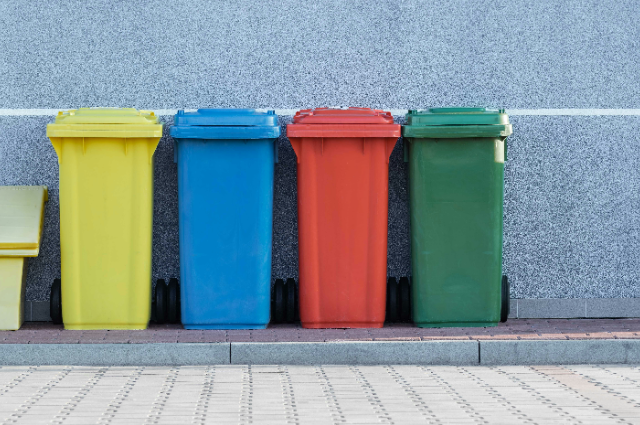
Photo by Pawel Czerwinski on Unsplash
UNEP (United Nations Environment Programme) and ISWA (International Solid Waste Association) recently published 'Global Waste Management Outlook 2024' to evaluate and put an eye of concern on global waste management trends and associated expenditures and costs.
Key findings:
- Urban solid waste is predicted to rise from 2.3 billion to 3.8 billion tonnes by 2050 and the expected cost of management seems to get double by the estimated year.
- The report shall look after waste management techniques. Relevant monitoring of data and things etc. Gendered aspects related to waste segregation and the informal sector participation. Weak laws, lenient enforcement and lack of enabling environment.
Recommendations offered:
- Re-defining waste as a 'Resource' instead of just considering it as something useless and just seeking it's way to pits and dustbins.
- Digitisation should be improved to tackle the waste management value chain.
- Scaling up and replication of zero waste.
- One who produces waste should be charged with a 'fees' and that shall help in waste reduction bringing a sense of compliance.
- Behaviour and pragmatics in people should be constructed in a manner that they understand the importance of waste utilisation and management.
- Informalisation that is happening especially with regard to manual scavengers shall rebate and recognise the importance of workers and associated females in waste management.
Why there should be 'Waste Management'?
- Chemical recycling of wastes and breaking it down into basic components and that may be further used as a raw material to generate some high-quality goods. Such a recycling technology shall even contribute to the production sector of the economy.
- Robotics-developed waste sorting systems shall help to improve waste efficiency example the Zen Robotics.
- Use of biodegradable and compostable materials shall always help in the reduction of waste generation. Use of eco-friendly packaging such as edible food containers and biodegradable plastics. Use of fungi-based packaging materials with the use of biotechnology is on the rise.
- Applying circular economy models shall keep materials in use for longer periods and thus promoting resource efficiency.
- This shall also help in the reduction of environmental pollution.
- Ecube and Enevo focus more on technology and companies are developing smart solutions for waste management and transforming waste into re-usable products.
- Companies need to educate their target consumers about some innovative techniques and solutions for waste management and thereby increasing awareness about responsible waste disposal.
- Government can include both penalties and incentives for improper waste disposal and recycling respectively.
- Many startups across the country are picking up here and there for waste management. They have collaborated together to work as value chains. Phool, an Indian start-up collects floral waste from temples and transforms it into charcoal-free incense sticks and different types of packaging material.
Significance of Waste-to-Energy (WtE)
It refers to a group of technologies that convert non-recyclable waste into usable forms of energy. It can be used to generate electricity and heat. This can be done through direct combustion using waste incinerators. It harnesses the calorific value of solid waste.
- It also helps in the reduction of the volume of solid waste, minimising the burden on landfill and waste management leading to efficient disposal.
- Energy generation shall meet up the energy deficit requirements from the rural and remote areas. Producing electricity from waste generated locally.
- WtE facilities recover valuable resources from waste such as metals and chemicals.
- Waste management shall help in curbing the green house gas effects.
Conclusion:
The key to sustainable waste management lies in integrating our whole lives with respect to waste management. Awareness campaigns and changing consumption patterns and waste management shall help in meeting our global climatic targets within the set deadlines.
. . .
References:
- insightsonindia.com
- www.unep.org
- sdg.iisd.org
- webtv.un.org
